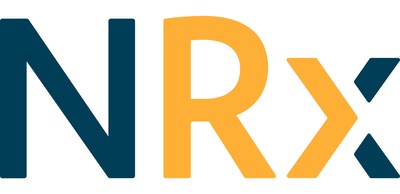NeuroRx submits request for Emergency Use Authorization for RLF-100™ (aviptadil) in the treatment of patients with Critical COVID-19 and Respiratory Failure who have exhausted approved therapy
On Sept. 23, 2020, NeuroRx submitted a request for Emergency Use Authorization (EUA) to the US FDA for RLF-100™ (aviptadil) to treat critically ill COVID-19 patients. The EUA request is based on a case-control study showing RLF-100 patients had a threefold improvement in survival and recovery compared to standard care. CEO Jonathan Javitt highlighted challenges in equitable access to treatment. The application aims to expedite the availability of RLF-100, which has shown potential in improving respiratory function during the COVID-19 pandemic.
- RLF-100™ patients showed a 3-fold improvement in survival and recovery from respiratory failure.
- EUA application aims to provide expedited access to RLF-100 for critically ill COVID-19 patients.
- RLF-100 has received IND authorization for both intravenous and inhaled delivery for COVID-19 treatment.
- Only a limited number of patients (21) were treated with RLF-100 in the case-control study.
Insights
Analyzing...
RADNOR, Pa., Sept. 23, 2020 /PRNewswire/ -- NeuroRx, Inc. has submitted a request for an Emergency Use Authorization (EUA) with the US FDA for the use of RLF-100™ aviptadil in patients who are receiving intensive care and who have exhausted all approved treatments. RLF-100 is being developed by NeuroRx as part of a global partnership with Relief Therapeutics Holdings, SA ("Relief") (SIX:RLF; OTCQB:RLFTF). The submission is based on a case-control study that compared patients who were treated with RLF-100™ (n=21) to those receiving maximal standard of care treatment (n=30) in the same ICU by the same medical staff. Patients treated with RLF-100™ demonstrated a 3-fold advantage in survival, recovery from respiratory failure, and other parameters indicative of meaningful clinical improvement. Hypotension was seen in two aviptadil patients and was successfully managed with pressors. Diarrhea was seen in 4/21 aviptadil-treated patients and 3/30 control patients. The results have been submitted to a peer-reviewed journal.
"The EUA application covers the same type of patients whom FDA has already allowed to receive treatment under the Expanded Access protocol authorized by the Agency in July. Tragically, we have found that many patients who might benefit from the Expanded Access protocol are hospitalized in centers that do not allow patients access to investigational drugs," said Jonathan Javitt, MD, MPH, Chairman and CEO of NeuroRx, "Our staff is working around the clock to address requests for RLF-100™ under the appropriate mechanism. All too often, patients of color and those of lower socioeconomic status are denied access."
FDA's guidance to industry identifies the criteria for EUA as safe and "may be effective," in contrast to the far more stringent requirement of "safe and effective" required for traditional drug approval. EUA may only be granted in circumstances where the Secretary of Health and Human Services has declared a Public Health Emergency, as is true in the COVID-19 pandemic.
Raghuram (Ram) Selvaraju, Chairman of the Board of Relief, said: "We continue to work tirelessly with our partner NeuroRx to bring this potentially life-saving drug to patients afflicted with severe complications of COVID-19 infection as quickly as possible. The pursuit of EUA status is a crucial component of this effort."
About VIP in Lung Injury
Vasoactive Intestinal Polypeptide (VIP) was first discovered by the late Dr. Sami Said in 1970. Although first identified in the intestinal tract, VIP is now known to be produced throughout the body and to be primarily concentrated in the lungs. VIP has been shown in more than 100 peer-reviewed studies to have potent anti-inflammatory/anti-cytokine activity in animal models of respiratory distress, acute lung injury, and inflammation. Most importantly,
COVID-19-related death is primarily caused by Respiratory Failure. Before this acute phase, however, there is evidence of early viral infection of the alveolar type 2 cells. These cells are known to have angiotensin converting enzyme 2 (ACE2) receptors at high levels, which serve as the route of entry for the SARS-CoV-2 into the cells. Coronaviruses are shown to replicate in alveolar type 2 cells, but not in the more numerous type 1 cells. These same type 2 alveolar cells have high concentrations of VIP receptors on their cell surfaces giving rise to the hypothesis that VIP could specifically protect these cells from injury.
Injury to the type 2 alveolar cells is an increasingly plausible mechanism of COVID-19 disease progression. (Mason 2020). These specialized cells replenish the more common type 1 cells that line the lungs. More importantly, type 2 cells manufacture surfactant that coats the lung and is essential for oxygen exchange. Other than RLF-100, no currently proposed treatments for COVID-19 specifically target these vulnerable type 2 cells.
About RLF-100
RLF-100 (Aviptadil) is a formulation of Vasoactive Intestinal Polypeptide (VIP) that was developed based on Dr. Said's original work at Stony Brook University, for which Stony Brook was awarded an FDA Orphan Drug Designation in 2001. VIP is known to be highly concentrated in the lungs, where it inhibits coronavirus replication, blocks the formation of inflammatory cytokines, prevents cell death, and upregulates the production of surfactant. FDA has now granted IND authorization for intravenous and inhaled delivery of RLF-100 for the treatment of COVID-19 and awarded Fast Track designation. RLF-100 is being investigated in two placebo-controlled US Phase 2b/3 clinical trials in respiratory deficiency due to COVID-19. Since July 2020, severe COVID-19 patients have been treated with RLF-100 under U.S. FDA Emergency Use Investigational New Drug (IND) authorization for treatment of individual patients, and an Expanded Access Protocol IND authorization for the treatment of respiratory failure in COVID-19.
About RELIEF THERAPEUTICS Holding SA
Relief focuses primarily on clinical-stage programs based on molecules of natural origin (peptides and proteins) with a history of clinical testing and use in human patients or a strong scientific rationale. Currently, Relief is concentrating its efforts on developing new treatments for respiratory disease indications. Relief holds orphan drug designations from the U.S. FDA and the European Union for the use of VIP to treat ARDS, pulmonary hypertension, and sarcoidosis. Relief also holds a patent issued in the U.S. and multiple other countries covering potential formulations of RLF-100.
RELIEF THERAPEUTICS Holding SA is listed on the SIX Swiss Exchange under the symbol RLF and quoted in the U.S. on OTCQB under the symbol RLFTF.
About NeuroRx, Inc.
NeuroRx draws upon more than 100 years of collective drug development experience and is led by former senior executives of Johnson & Johnson, Eli Lilly, Pfizer, and AstraZeneca, PPD. In addition to its work on RLF-100, NeuroRx has been awarded Breakthrough Therapy Designation and a Special Protocol Agreement to develop NRX-101 in suicidal bipolar depression and is currently in Phase 3 trials. Its executive team is led by Prof. Jonathan C. Javitt, MD, MPH, who has served as a health advisor to four Presidential administrations and worked on paradigm-changing drug development projects for Merck, Allergan, Pharmacia, Pfizer, Novartis, and Mannkind, together with Robert Besthof, MIM, who served as the Global Vice President (Commercial) for Pfizer's Neuroscience and Pain Division. Its Board of Directors and Advisors includes Hon. Sherry Glied, former Assistant Secretary, U.S. Dept. of Health and Human Services; Mr. Chaim Hurvitz, former President of the Teva International Group, Lt. Gen. HR McMaster, the 23rd National Security Advisor, Wayne Pines, former Associate Commissioner of the U.S. Food and Drug Administration, Judge Abraham Sofaer, and Daniel Troy, former Chief Counsel, U.S. Food and Drug Administration.
Disclaimer: This communication expressly or implicitly contains certain forward-looking statements concerning RELIEF THERAPEUTICS Holding AG, NeuroRx, Inc. and their businesses. Such statements involve certain known and unknown risks, uncertainties and other factors, which could cause the actual results, financial condition, performance or achievements of RELIEF THERAPEUTICS Holding AG and/or NeuroRx, Inc. to be materially different from any future results, performance or achievements expressed or implied by such forward-looking statements. RELIEF THERAPEUTICS Holding AG is providing this communication as of this date and does not undertake to update any forward-looking statements contained herein as a result of new information, future events or otherwise.
![]() View original content to download multimedia:http://www.prnewswire.com/news-releases/neurorx-submits-request-for-emergency-use-authorization-for-rlf-100-aviptadil-in-the-treatment-of-patients-with-critical-covid-19-and-respiratory-failure-who-have-exhausted-approved-therapy-301136257.html
View original content to download multimedia:http://www.prnewswire.com/news-releases/neurorx-submits-request-for-emergency-use-authorization-for-rlf-100-aviptadil-in-the-treatment-of-patients-with-critical-covid-19-and-respiratory-failure-who-have-exhausted-approved-therapy-301136257.html
SOURCE NeuroRx








